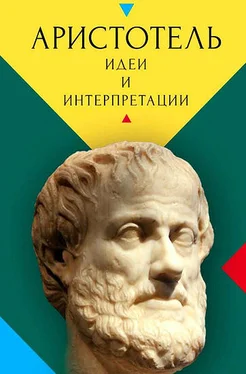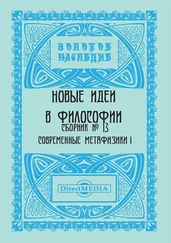Пер. Н.Т. Голинкевича. Ср. перевод Чарльза Гулика: «Aristotle says in the work On Drunkenness : „If wine be boiled down moderately, the drinking of it is less apt to cause intoxication; for the potency of it when boiled down becomes weaker. Older men, he continues, become intoxicated soonest because of the slightness and weakness of the natural heat contained within them. But very young persons also become intoxicated rather quickly because of the large amount of heat within them; for they are easily overpowered by the heat which is added from the wine…“». — См.: Gulick (tr.) 1957, p. 445. Ср. также перевод Йонга: «And Aristotle, in his treatise On Drinking , says, „If the wine be moderately boiled, then when it is drunk, it is less apt to intoxicate; for, as some of its power has been boiled away, it has become weaker“. And he also says, „Old men, become drunk more quickly on account of the small quantity of natural warmth which there is in them, and also of the weakness of what there is. And again, those who are very young get drunk very quickly, on account of the great quantity of natural warmth that there is in them; for, in consequence, they are easily subdued by the warmth proceeding from the wine which is added to their natural warmth…“». — См.: Yonge (tr.) 1854, vol. II, p. 677–678.
Пер. В.Т. Звиревича. Ср. перевод П. Дэйвиса: «I remember having read in the work of a Greek philosopher (onless I am mistaken, it was Aristotle’s treatise On Drunkenness ) that women rarely become drunk but old men often, and that no explanation was given either of the frequency of the one occurrence or of the rarity of the other. Non since this question is one that is wholly concerned with our bodily nature… (16) In this as in everything else… Aristotle is right… Women, he says, rarely become drunk, old men often. There is a completely rational explanation of each part of this twofold statement, and the one depends on the other; for when we have learned what it is that keeps women from becoming drunk, then we know what it is that often brings old men to this pass, since it so happens that the nature of a woman’s body is the direct opposite of the nature of an old man’s body». — См.: Davies (tr.) 1969, p. 470.
Такое значение для чтения «senes» предложено В.Т. Звиревичем. См. Звиревич (пер.) 2013, p. 484.
Пер. В.Т. Звиревича.
Пер. В.Т. Звиревича. Ср. английский перевод П. Дэйвиса: «(17) A woman’s body is full of moisture, as appears from the smoothness and sheen of her skin, and above all from the repeated purgings which rid her body of the burden of superfluous fluid. The wine, then, that a woman drinks meets such an abundance of fluid that it loses its force and becomes diluted, and with its strength extinguished it does not easily attack the seat of the brain. (18) The truth of this statement is supported by the further consideration that a woman’s body, being subject to frequent purgings, is provided with a number of outlets to open up channels and make ways for the exit of the moisture that collects for evacuation, and it is through these outlets that the fumes of the wine quickly disappear. (19) An old man’s body, on the other hand, is dry, as is evident from the harshness and roughness of his skin, That is why at that time of life it becomes more difficult to bend, for this too is an indication of dryness. Wine drunk by and old man encounters no resistance and opposition from moisture but lays hold of the dry body with its strength unabated and presently takes possession of the parts which serve a man’s faculty of reason. (20) The bodies of old men are, without doubt, hard as well; and so, in these harder limbs, the natural channels themselves also become blocked, and consequently there are no means of escape for the fumes of the wine drunk, but they ascend in their entirety to the very seat of the mind». — См. Davies (tr.) 1963, p. 470–471.
Пер. В.Т. Звиревича. Ср. английский перевод П. Дэйвиса: «(21) Thus it happens that, even when they are sober, old men labor under the unpleasantnesses which attend drunkenness — for their limbs tremble, their speech is indistinct, they are talkative, and they are easily provoked to anger — and in their liability to these conditions old men sober resemble young men drunk. If, then, old men are but slightly under the influence of wine, they do not experience these unpleasant symptoms for the first time but rather exhibit in a more marked degree symptoms to which they have already become subject by reason of their age». — См.: Davies (tr.) 1963, p. 471.
См.: Петрова (2015В), с. 60–62.
См.: Петрова (2015Б), с. 72–81.
Исследование выполнено при финансовой поддержке РНФ, в рамках проекта (№ 15-18-30005) «Наследие Аристотеля как конституирующий элемент европейской рациональности в исторической перспективе». Впервые опубликовано: ΣΧΟΛΗ (Schole) 10/2 (2016). c. 366–376.
Заметим, что в раннее Средневековье преимущественно была распространена литература о видениях, а не о снах. См., напр.: Amat, J. 1985; Dulaey, M. 1973.
См., напр., у Алкуина ( Comm. in Ap. PL 100, 1089AB) и Седулия Скотта ( Collect. mise. diuisio 40, 1). Подробнее см.: Петрова, М.С. 2007. 155-9.
Следует обратить внимание на примеры, взятые Григорием из Писания для обозначения четырёх видов сна (которые будут заимствованы многими средневековыми авторами (e.g.: Гонорий Августодунский [Eluc. III, 9: Undesomnia , PL 172, col. 1163A]). Указывая на иллюзорность сновидений, Григорий цитирует строки из Ветхого Завета (Сир. 34: 7; Лев. 19: 26). Для снов двойного происхождения, он приводит строфу из Екк. 5: 2 ( размышление и иллюзии ), а также упоминает историю Даниила, растолковавшего сон Навуходоносора (Дан. 2: 29–31) ( размышление и откровение ). Для обозначения снов, посланных Богом, происходящих от тайных откровений , Григорий указывает на сны ветхозаветного Иосифа (Быт. 37: 6–7 и 9) и Иосифа, супруга Марии, из Нового Завета (Мф. 2: 13). См. Greg., Dial (ad loc.). Также см.: Морозова, Е.В., пер. 2001, 355-7; 366-8.
См. Петрова, М.С. 2007. 135-54; 155-72.
Об известности ряда трактатов Аристотеля из Parva Naturalia в арабском мире, среди которых: De sensu, De memoria, De somno, De insomniis, De divinatione, De longitudine , см.: Donati, S. 2012, 346. Об арабских переводах Parva Naturalia , а также о гипотезисе существования различных версий этого собрания Аристотелевых текстов, их восприятии в арабском мире, см.: Di Martino, c. 2003, 375-8. О платонизированном Аристотеле см.: Hansberger, R. 2006 / 7; Eadem 2008, 50–77; Eadem 2010, 143-62; Eadem 2011, 57–84; Endress, G., 2012, 274-5. О малых естественнонаучных сочинениях Аристотеля О сне и бодрствовании, О сновидениях, О предсказаниях во сне см.: Чулков, О.А. 2005, 420-32; Чулков, О.А., пер. 2005, 423-32; Солопова, М.А. 2011,40–58.
Читать дальше












